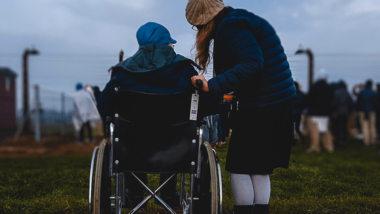MSPs have voted to advance Liam McArthur’s assisted suicide Bill in Holyrood, despite passionate opposition.
Following a debate that lasted less than five hours, Scotland’s elected representatives voted 70 to 56 in favour of Liam McArthur’s Bill, which would enable adults deemed to be terminally ill to get help to kill themselves.
The legislation will now progress to stage two, where it will be examined further, and amendments will be debated and voted on before it returns to the chamber for its final vote. Several MSPs said they only voted in favour in order to give the Bill extra time for debate, and only eight would need to change their vote at stage three to prevent the Bill becoming law.
Bill legitimises view that some lives are ‘not worth living’
Several MSPs spoke powerfully against the Bill, including disabled MSP Pam Duncan-Glancy.
The Labour MSP said: “I know many of you have doubts about this Bill, and you are right to. If it passes, there is a risk that it will be easier to access help to die than help to live, and I cannot support that.
“We’re not simply voting on a principle of choice, but on a hugely controversial piece of legislation that, yes, could put disabled people at material risk, but worryingly it is also legislation that could serve to legitimise a view that a life like ours, one of dependence and often pain is not worth living.”
‘Better off dead’
Duncan-Glancy said that disabled people like herself struggle throughout their lives to be given the same advantages that the able-bodied take for granted, and that this struggle can lead to an “internalised ableism” that makes them feel they “cannot go on”.
“The extent of internalised coercion, the risk that we’d choose to die, and that the state will help, is real with this Bill.
“The systemic coercion that makes us consider for just a moment that we’d be better off dead – legislating to make that happen brings the real risk that in moments when we are ground down, we wouldn’t only believe that we’re better off dead, but that the state could help make that happen.”
“It is inconceivable to suggest that the introduction of assisted suicide is about choice at the end, when so many people do not have choice throughout life.”
‘This is not a safeguard, it’s a red flag’
Sue Webber, Conservative MSP for the Lothian region, highlighted the influence of her constituents, saying: “Coming into Parliament in 2021, I looked far more favourably on this Bill than I do now. I have changed my mind.
“Thousands of emails, hundreds of discussions have led me to believe this: Despite the very best of intentions at the heart of this Bill, the risks that it introduces are real and serious. And so like many this afternoon, I say ‘Don’t risk it’.”
She said that, “at first glance, this Bill looks focussed and narrow”, but said that upon closer inspection, “the scope is far wider than it seems”.
“Crucially, the definition of terminal illness in this Bill requires no specific prognosis and no clinical expectation of imminent death. This means individuals with conditions which may persist for years, even with fluctuating severity, may still qualify. This is not a safeguard. It’s a red flag, and it carries serious lasting risk.”
‘That has to be a worry’
Independent MSP John Mason quoted a briefing from the Nuffield Trust, which said: “Of the systems we reviewed, we found no examples where eligibility became more narrow or restricted over time.
“Some, such as Oregon in the United States, have remained relatively consistent. Among some systems where assisted dying has been legal for over five years, eligibility criteria have expanded, notably in Canada, Belgium and the Netherlands.”
Mason commented: “That has to be a worry. However tight we make a system to start with, experience shows that it becomes looser and looser.”

Scotland’s First Minister pledges to vote against assisted suicide
Killing thousands could save NHS millions, Govt estimates
Leadbeater’s assisted suicide Bill ‘not compatible’ with human rights

